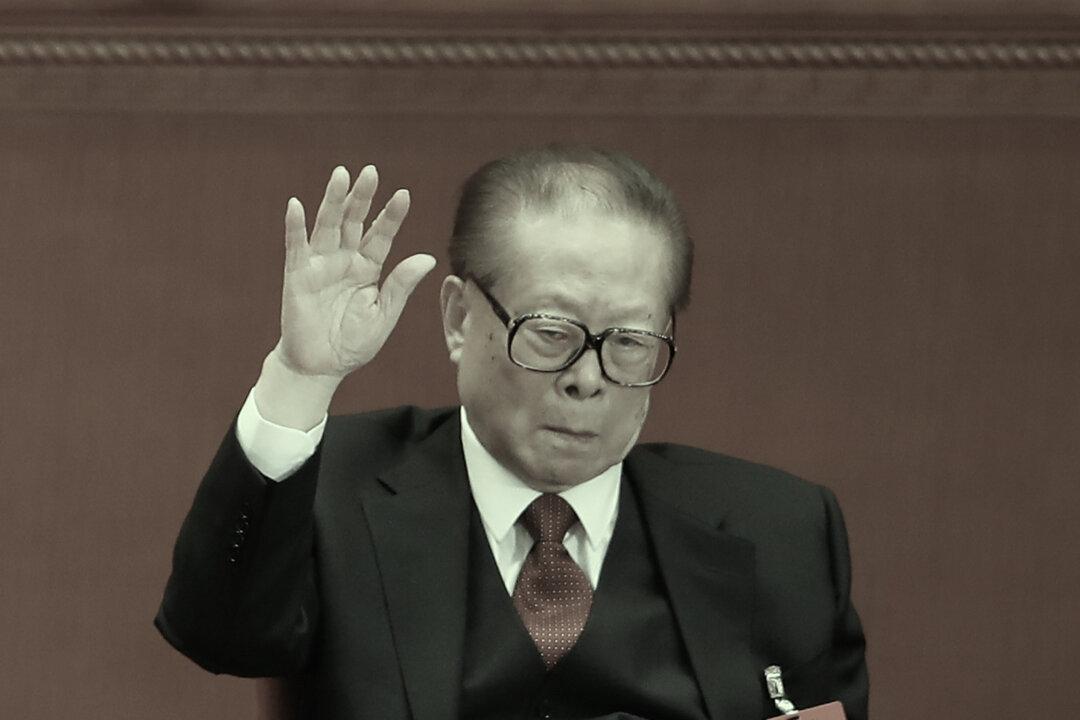The British ambassador’s message of condolences following the death of former Chinese leader Jiang Zemin, which made references to the late Queen Elizabeth II and the meeting of the two, was met with mixed reactions.
One China expert said it’s “absurd and distasteful” that comparisons were made between the Queen and “a brutal dictator,” while another said the Twitter post was “a model of sobriety and diplomatic practice.”
But the China watchers were united on the assessment of Jiang’s legacy, which they said must include his campaign to eradicate the adherents of the spiritual practice of Falun Gong.
Jiang, former leader of the Chinese Communist Party (CCP), rose to power in 1989, weeks after the then-paramount leader Deng Xiaoping sent tanks and troops to crush pro-democracy student protesters gathering at Tiananmen Square in Beijing, replacing Zhao Ziyang, who was sympathetic to the student demonstrators.
During his tenure, Jiang often touted his achievements, including bringing Hong Kong back from British rule in 1997 and enrolling the country into the World Trade Organization (WTO) in 2001. His engagement with Western governments also gave him the reputation of a somewhat progressive and colourful character.
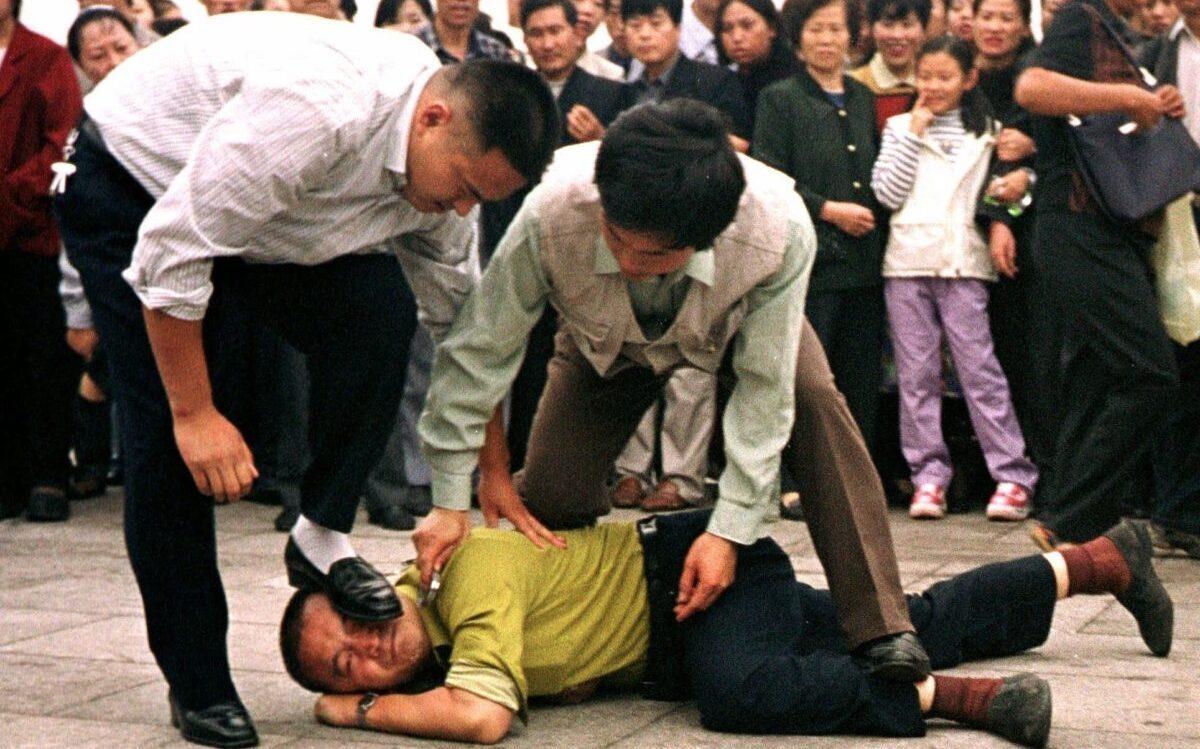
However, what Jiang never mentioned was the numerous Chinese dissidents who were put behind bars. The suppression reached a new high in the summer of 1999 when he launched a campaign to “eradicate” Falun Gong within three months. The campaign remains ongoing to this day.
An independent people’s tribunal chaired by the prominent British barrister and judge Sir Geoffrey Nice KC in 2019 found that Falun Gong practitioners had been and continued to be the main group of victims killed for their organs. Evidence emerged in recent years suggesting the Uyghurs and other ethnic minorities have also become victims of state-sanctioned forced organ harvesting.
The former CCP leader died in Shanghai on Nov. 30, aged 96, according to Chinese state media.
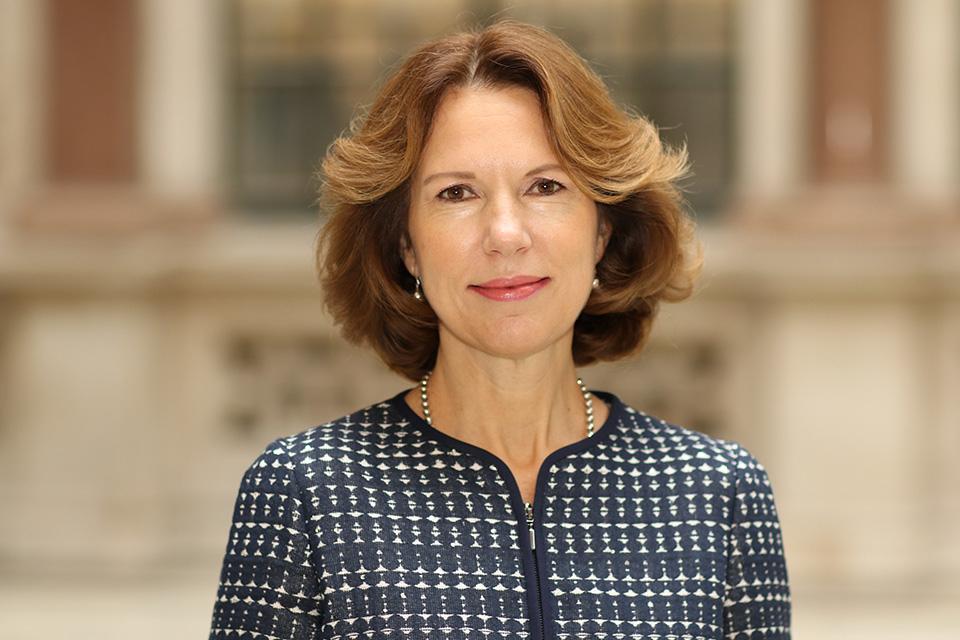
“China is mourning Jiang Zemin,” Wilson wrote. “Born like Queen Elizabeth II in 1926, the two met in 1986 on Her State Visit. The first Chinese leader to visit the UK, former President Jiang oversaw the return of Hong Kong & China’s entry into WTO. The UK offers its condolences.”
Mixed Reactions
Benedict Rogers, Epoch Times contributor and co-founder and deputy chairman of the Conservative Party Human Rights Commission, said it’s “both absurd and distasteful” to make any comparison “between a brutal dictator and our much-loved Queen.”In an email to The Epoch Times, Rogers said many parts of China have “no reason to mourn,” adding, "The British ambassador should be more careful and less subservient to the CCP in her tweets in future.”
In a separate statement on Jiang’s legacy, Rogers said Jiang was “no progressive.”
“Let us not whitewash the fact that Jiang has blood on his hands and his legacy is one of repression as much as it is of economic advancement,” he said.
Lord Alton of Liverpool, also a vocal advocate for human rights, said in an email to The Epoch Times, “Jiang Zemin’s epitaph and any assessment of his life is incomplete if it makes no reference to his barbaric order to ‘eradicate’ Falun Gong ‘by any means possible.’
“The brutality of his ideology has inflicted great suffering on millions of people which the niceties of diplomacy cannot ignore,” the crossbench peer said.
Alton and the Conservative Party Human Rights Commission were sanctioned by the Chinese regime last year for highlighting the human rights atrocities in Xinjiang, which was determined to be genocide by the Uyghur Tribunal, U.S. government, UK Parliament, and a number of legislatures in Europe and North America.
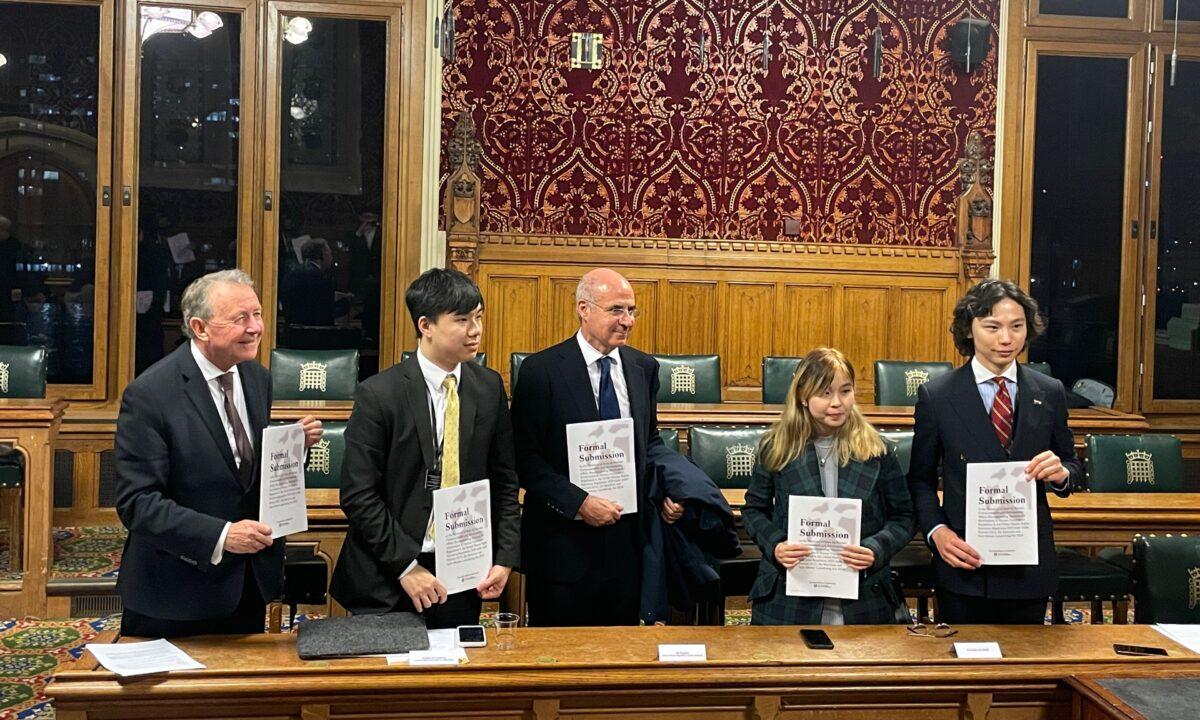
Roger Garside, a former diplomat who twice served in Beijing, argued Wilson’s statement was “the minimum that could and should be said by a UK official representative.”
The tweet was not a judgment, but stated “three facts which are all important to the United Kingdom and it does so in entirely neutral terms,” the associate fellow of foreign policy think tank Henry Jackson Society told The Epoch Times.
Garside also emphasised the fact that the statement was issued in the name of the ambassador, not the British government as would be expected if it was the death of former leader of a close ally.
“And it is, I would say, the minimum that could and should be said by a UK official representative in this message,” he said, “I think it’s a model of sobriety and diplomatic practice, particularly when compared to statements issued on behalf of many other governments.”
However, Garside said, the UK and its allies “should never have accorded Chinese leaders, including Jiang Zemin, ”the honour of a state visit“ after the Tiananmen massacre of 1989, adding that he found it ”repulsive” that any leader of the world’s largest Communist Party should be invited either to address the UK Parliament or be entertained by the Queen at the Buckingham Palace, referring to the state visits of Jiang and currently Chinese leader Xi Jinping.
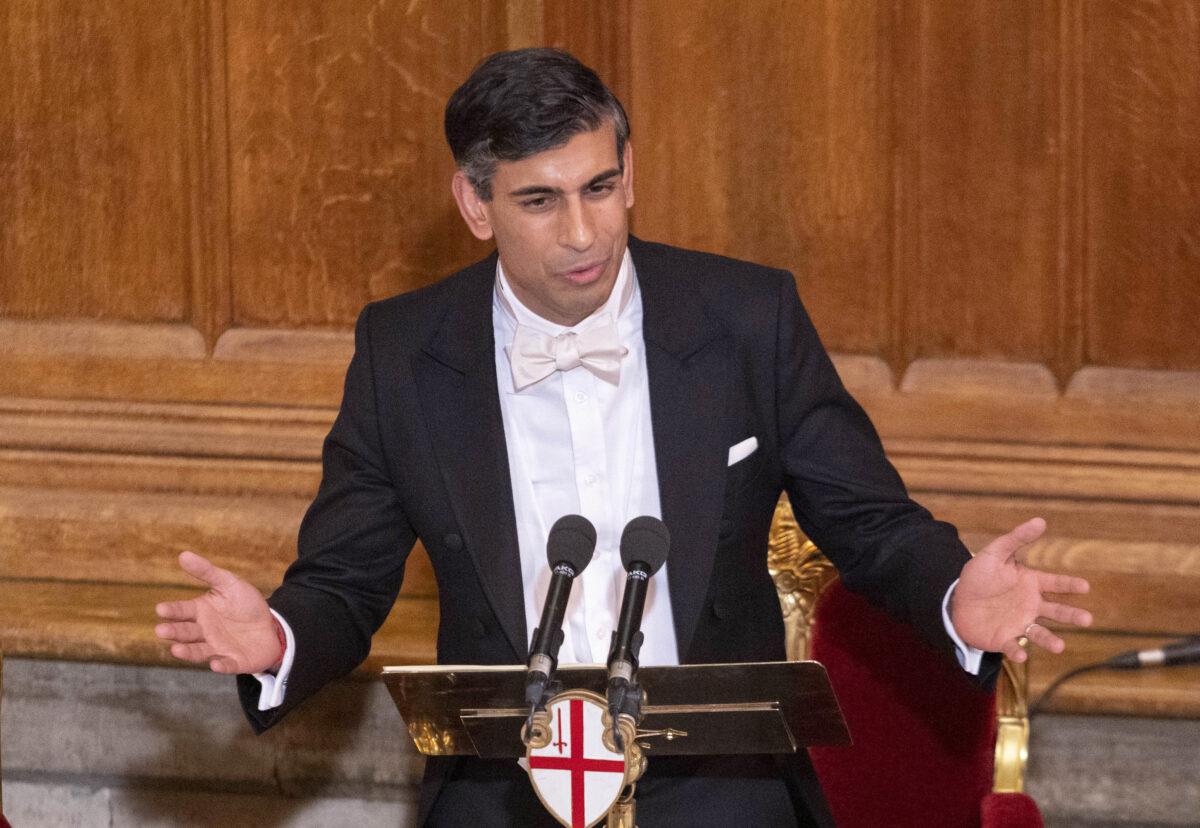
Commenting on Jiang’s legacy, Garside also said any assessment of his role in history should mention that he played a leading role in the persecution of Falun Gong.
The West ‘Failed to Recognize’
Looking back at Western Democracies’ strategy of engaging with the Chinese regime in the decades since 1979, Garside said he believes that successive governments in the UK, the United States, and their allies have “failed to strike the right balance” between short-term economic gains and the defence of their democratic values and universal human rights.“They fostered the complacent view that increased trade and investment would automatically lead to improvement in the policy of the Communist Party of China on human rights. They failed to recognize the totalitarian character of the regime,” he said.
Asked what the right balance is going forward, Garside doesn’t believe it makes sense to try “completely decoupling across the board,” but said, “we have to accept that there will be short term financial cost in terms of trade and investment to giving due weight to our security interests.”
“The alternative is much more damaging in the long term, both to our political interests and economic interests,” he said. “Because our economies will only flourish in a healthy way if we have the right political framework—the rule of law, independent judiciary, freedom of expression.”
Commenting on Sunak’s recent description of the Chinese regime as the “biggest state-based threat to our economic security,” Garside said the regime also poses a threat to the UK’s political values, citing the CCP’s sanctioning of individuals, countries, and publishers for criticising its human right record or publishing content unacceptable to the regime and its “long-term and very successful strategy” of undermining U.N. bodies such as the Human Rights Council.
“You can’t separate out the two, and China doesn’t separate. The Chinese Communist Party doesn’t separate out politics and economics. It regards them as intimately linked, and we should do the same. And if that means educating our population better on these matters then the government should take a lead in that,” he said.
